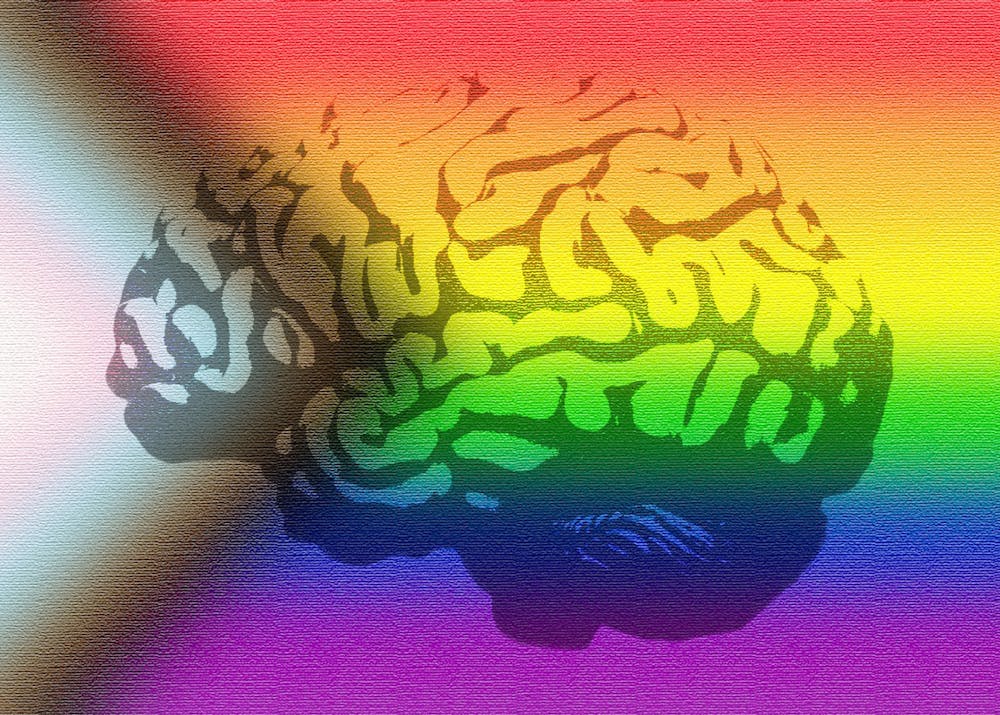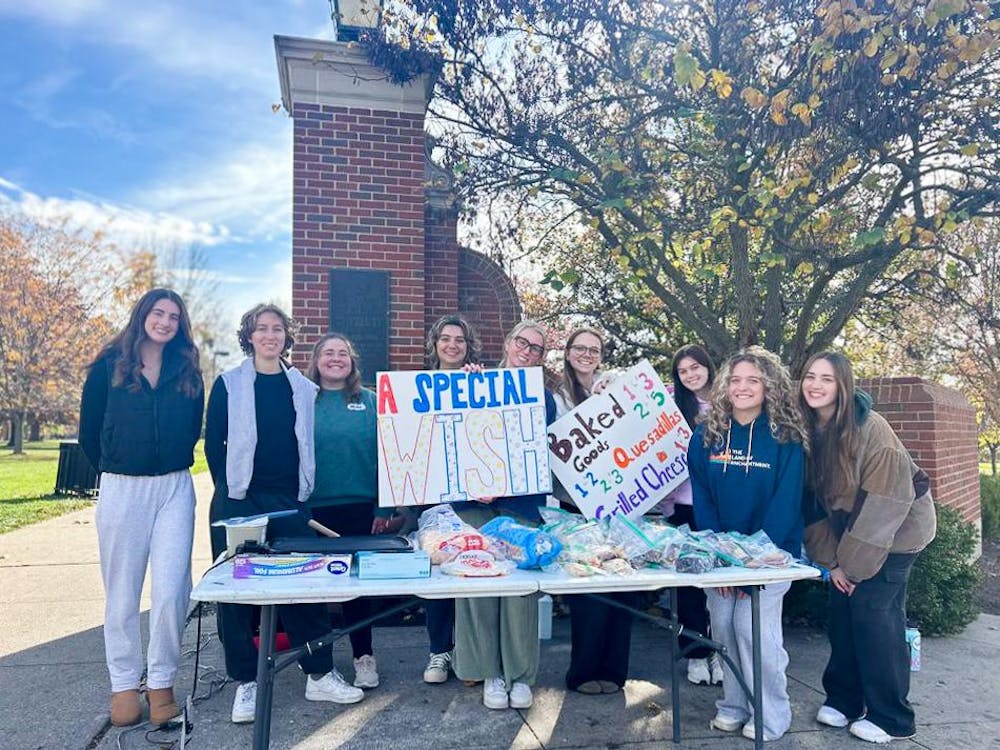The Trevor Project, the world’s largest organization dedicated to suicide prevention for LGBTQ+ individuals, released its 2021 national survey examining the mental health of LGBTQ+ youth ages 13-24.
The statistics published by the Trevor Project show 75% of LGBTQ+ youth reported that they had experienced discrimination based on their sexual orientation or gender identity at least once in their lifetime.
Joel Pantuso, a senior microbiology major who identifies as queer and gender fluid, said their professors have been good about respecting their identity, but the way they are treated by fellow students varies.
“A lot of people see me as just a girl, and I simply am not,” Pantuso said. “There’s some people who are actually outright hostile about it. I have been told, ‘Non-binary people don’t exist. You’re making this up, this is a mental illness,’ by students on this campus.”
42% of LGBTQ+ youth respondents to the survey reported they seriously considered attempting suicide in the past year, including more than half of transgender and nonbinary youth.
Elise Clerkin, associate professor of psychology at Miami University, said part of these higher rates of mental health issues among LGBTQ+ youth may be attributed to minority stress theory, or the idea that marginalized individuals face higher levels of stress due to the prejudice they face.
“People who are LGBTQ carry around with them all of the typical stressors of an adolescent or emerging adult and then on top of that they carry around ones related to discrimination,” Clerkin said. “It's not surprising then that you would be even more at risk for mental health issues.”
Clerkin said this harmful combination must be considered when trying to help LGBTQ+ individuals navigate their mental health struggles.
“As a clinician, it’s always a balance between trying to figure out how much of the work that I’m doing with a client should be about trying to address some of the systemic issues that are leading to things like discrimination versus trying to work specifically with the individual to remedy their own mental health issues,” Clerkin said.
Madelyn Detloff, English department chair and a professor of women’s and gender studies, said the link between the LGBTQ+ community and suicidal ideation is partly a result of daily microaggressions reaching a boiling point.
“Imagine people persistently calling you the pronoun you don't use and having that happen over and over again,” Detloff said. “At a certain point, it just becomes this avalanche of tiny invalidations that become a huge mountain. One microinvalidation is not a lethal threat, but it can build and build.”
Pantuso is also the co-president of Spectrum, a student-run organization devoted to raising awareness and creating community for LGBTQ+ individuals at Miami. One statistic that stood out to Pantuso was the 48% of LGBTQ+ youth that reported they wanted counseling from a mental health professional but were unable to receive it in the past year.
Enjoy what you're reading?
Signup for our newsletter
“There’s so many people that come [to Spectrum] and share really negative experiences they’ve had with their mental health and struggling to find counselors, and therapists not understanding what it means to be queer or trans,” Pantuso said. “These issues are absolutely ringing true with the queer community at Miami’s campus.”
Evan Gates, a sophomore quantitative economics and individual studies double major who is bisexual and transgender, said making sure mental health professionals have a holistic understanding of oppression is essential to making LGBTQ+ youth feel supported on campus.
“As a trans student, my legal identity does not match the identity that I walk around with,” Gates said. “There’s a trauma and a mental health issue related to that where you're trying to reconcile your legal identity that's upheld by the system and the identity that is actually yours.”
The Trevor Project’s survey also found that students with access to spaces that affirmed their sexual orientation and gender identity reported lower rates of attempted suicide. Pantuso said their experience with Spectrum supported this finding.
“A lot of us, especially living in rural Ohio, might not know anyone that shares our identities, so it can feel really isolating,” Pantuso said. “Students having access to queer organizations and groups on campus can give them a support network that they need to survive.”
The survey also found that more than 80% of LGBTQ+ youth stated that COVID-19 made their living situation more stressful. Only one in three viewed their home as LGBTQ-affirming.
“[Because of COVID], a lot of students and younger LGBTQ members have been forced to stay at home with non-accepting families,” Pantuso said. “Not being able to be in an environment of people that support you, and even share the same identities as you, can be really detrimental.”
Moving forward, the results of the Trevor Project’s survey beg the question of what Miami can do to help its LGBTQ+ students.
Gates said that first and foremost, Miami must aim to have more LGBTQ+ representation in administration and faculty. His own work on Associated Student Government as co-director of transgender equity and inclusion reflects this goal.
“The idea is to find an adovcate for non-binary and transgender students on campus because right now, there are no dedicated administrative resources for either of those groups,” Gates said.
Clerkin said having more LGBTQ+ voices is crucial, but recruiting them may come with its own challenges.
“Oxford is not going to always feel like the most welcoming place to people from various minority backgrounds,” Clerkin said. “There's always that tension between wanting to recruit people from a range of backgrounds and then being able to really support them once they're here so they feel like they belong.''
Gates said one way Miami can help transgender students feel more included on campus would be to improve the speed and simplicity of its name-changing process.
The current process allows individuals to go to the staff directory and replace their legal name with a preferred name, which changes their name across 80 different IT systems. However, Miami uses 160 different IT systems, many of which have to be changed one at a time.
“People would lose their ID on purpose and pay the $35 to get a new ID because they would let you pick your name on it,” Gates said.
Gates said changing a student’s name on documents like financial aid and medical information requires a legal name change, which can be a difficult and expensive process, especially in states like Kentucky that have surgery requisites.
While changes at the administrative level are important, Gates said a cultural change is also necessary.
“I think it's a fundamental lack of representation within education,” Gates said. “It’s something that you have to go out of your way to learn.”
Gates said he wishes Miami would put more emphasis on understanding LGBTQ+ issues in its curriculum rather than having students educate themselves.
“It’s saying, ‘I respect your identity in the way that I’m going to center the education,’ and at the end of the day, we’re all here for education,” Gates said. “So if we can’t prioritize it in that context, how are we going to prioritize it anywhere else?”
Detloff said research like the Trevor Project’s survey is important for starting a conversation about issues pertaining to the LGBTQ+ community.
“This report is a barometer of how far we have to go to change our social, family and support structures to be able to allow LGBTQ+ youth to flourish and live into adulthood,” Detloff said. “Miami’s not there yet … We have a long way to go, and we really have to commit to it with our resources as well as our rhetoric.”




